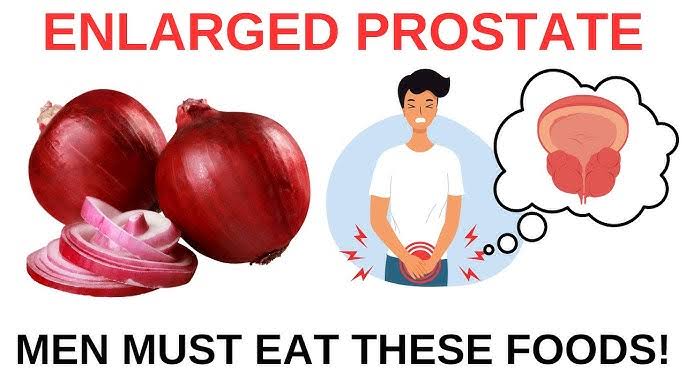[lwptoc]
Opinions about benefits and the subject: “Is corn bad for gout sufferers” are ambiguous. On the one hand, corn contains a wide variety of useful vitamins, micro and macro elements that ensure the well-coordinated functioning of internal organs and systems.
As a matter of fact, corn acts as an antioxidant, activates metabolic processes, which is important for gout.
However, corn often causes undesirable consequences on the part of the digestive and cardiovascular systems, and worsens the general health of the patient.
In the article we will consider whether if eating corn is safe for gout sufferers. Additionally, find some other frequently asked questions about gout sufferers in this health blog.
What is gout
Gout is a type of arthritis due to high levels of uric acid in the blood. Generally, this disease is characterized by pain in the joint area, so it is often difficult to distinguish it from rheumatic pain, which is pain that causes inflammation and swelling of muscles or joints. Apart from causing pain, gout sufferers will also experience a burning sensation and joint swelling. Gout mostly affects men aged around 30 years and in women this disease usually attacks during the menopause phase. This condition can be caused by heredity, injury, consumption of sugary drinks or alcohol, consumption of drugs or due to other medical conditions.
How common is gout?
Gout is a common condition in adults. According to report, this disease occurs in 1-2% of adults and is the most common case of inflammatory arthritis in men.
Gout is estimated to occur in 13 people out of 1,000 men and 6 people out of 1,000 women.
Meanwhile, other types of arthritis that often occur in women, namely osteoarthritis and rheumatoid arthritis. However, gout can be managed by reducing some lifestyle factors.
Is Corn Bad For Gout Sufferers?
Corn contains high amount of fructose, a type of fruit sugar, the liver may produce more liver enzymes as a result, which increases the level of uric acid in your blood. Therefore, corn and other foods high in fructose should be avoided for gout sufferers.
Also, it may be advisable to stop eating corn and drinking alcohol as this can raise the amount of uric acid in your bloodstream, which can worsen your pain and swelling and this may result in kidney stones and gout attack.
Additionally, it is important to reduce the quantity of foods and drinks that are high in uric acid, if you are taking gout medication, as it could cause liver failure.
How Does Corn Cause Gout?
Although, corn like any other plant, has potential health benefits, but can have a negative effect for gout sufferers. See how corn is bad for gout:
- Corn contains a lot of fructose, which can raise blood uric acid levels and increase the production of liver enzymes in your body.
- Corn often causes undesirable consequences on the part of the digestive and cardiovascular systems when consumed. For gout sufferers, this can cause several issues including increased urination and joint inflammation.
- As is known corn is a high-fiber food that can lead to an increase in uric acid production in your body.
This is why you should reduce your consumption of corn if you have gout.
What are some lifestyle changes and home remedies that can help treat gout?
Not only do you take medication regularly, you also have to comply with various gout restrictions to prevent recurrence in the future.
In addition, you also need to adopt a healthy lifestyle to help overcome this disease. Here are lifestyle changes and home remedies you can make:
- Limiting foods high in purines, such as red meat, offal, and seafood (seafood).
- Limit consumption of alcohol and drinks or foods containing fructose.
- Eat foods for gout that can help lower uric acid levels, such as cherries.
- Drink more water.
- Do regular exercise and lose weight.
- Stop smoking habit.
If you experience a gout attack or a recurrence occurs, apart from taking medication from a doctor, you can do the following home methods to help deal with it:
- Rest.
- Elevate the painful limb to reduce swelling.
- Apply an ice pack to the affected joint for about 20 mins.
- Repeat the compress as often as needed.
What Can You Do To Prevent Gout?
Gout cannot be cured. But it can be controlled by adopting a healthy life. For those of you who don’t have it yet, prevent the symptoms of gout, so that the body is always healthy. However, gout can be prevented by:
- Avoid foods high in purines
Uric acid abstinence is not like other diseases. If the prevention of other diseases requires that a person eat lots of vegetables and fruit, the prevention of gout is not the case. To prevent gout, avoid foods that contain high purines. For example, high-purine vegetables (asparagus, mushrooms, spinach, cauliflower, bean sprouts, and nuts), high-purine fruits (durian, jackfruit), seafood, duck, goat, offal, and fatty and processed foods.
Better, consumption of foods that can reduce uric acid content. Call it bananas, ginger and cooking water, cherries, lemons and apple cider vinegar. However, before consuming it, consult with your doctor first.
In addition, reduce consumption of soda and alcoholic beverages. Like beer, which has high purine levels. Meanwhile, sweet drinks, both soft drinks and caffeinated drinks (tea, coffee and energy drinks) can cause uric acid levels to increase. Instead, consume about 1.5 or 2 liters of mineral water per day.
- Periodic health check
As a preventive measure, there’s nothing wrong with buying a uric acid check kit for home use. If you have symptoms or want to check uric acid after eating, you can do it yourself. Normal uric acid levels for women are below 6 mg/dL, while for men it is below 7 mg/dL.
- Maintain ideal body weight, and lose weight if you are obese.
- Consume enough water to avoid dehydration.
- Doing exercise regularly.
What Can You Eat to Improve Your Health If You Have Gout?
However, it should be understood that there is no single food that can be a cure for gout. Adopting a healthy diet mainly helps reduce the risk of recurrent gout attacks and slows the rate of joint damage.
The following is a list of foods that can be eaten and are often recommended for gout sufferers:
-
Cherry fruit
All fruits are generally good for consumption by gout sufferers. However, of all types of fruit, cherries are highly recommended because they are believed to reduce uric acid levels.
Cherries contain anthocyanins, which are red-purple pigments, which are antioxidants and anti-inflammatory. These ingredients have been shown to reduce uric acid levels, relieve joint pain, and reduce the risk of recurrent gout attacks. Its effectiveness will increase if it is taken together with the uric acid drug allopurinol or colchicine.
Reporting from Kidney Atlas, several studies have shown the effectiveness of cherries in the treatment of gout. One study showed that participants who consumed 10-12 cherries, both fresh fruit and fruit extract including juice, up to three times a day, experienced a decrease in uric acid attacks by up to 35 percent.
However, cherries include fruit that contains high sugar. Therefore, you should be careful eating this fruit if you also have a history of diabetes.
-
Lemons
Apart from cherries, other fruits that are good for consumption and are believed to be able to reduce uric acid are lemons, including lemon juice. The content of vitamin C in lemon is considered to help relieve pain and reduce inflammation due to high uric acid.
Reporting from the Arthritis Foundation, Tuhina Neogi, a lecturer in medicine at Boston University School of Medicine, said that vitamin C can help the kidneys work more efficiently in removing excess uric acid in the blood. However, more research is needed to prove its effectiveness.
Apart from lemons, gout sufferers can also consume other foods or fruits that contain vitamin C, such as oranges, pineapples, grapefruits, and strawberries.
-
Banana
Bananas can also be used as the fruit of choice for consumption by gout sufferers. The reason is, bananas contain high potassium, which can prevent the formation of uric acid crystals in the body.
In addition, if uric acid crystals have formed, potassium can prevent the crystals from hardening so that they will be excreted more easily by the kidneys. You can eat one or two bananas every day to help lower uric acid.
-
Cherry fruit
Kersen fruit or by another name Jamaican cherry is also said to be one of the good foods consumed by gout sufferers. A 2013 experimental study conducted on mice or rats has proven the benefits of cherry fruit for treating gout.
In this study it was found that giving cherry fruit in the form of juice can affect the decrease in blood uric acid levels, although this decrease is not as sharp as using allopurinol. However, in another study, giving cherry fruit juice for 8 days was said to not affect a person’s uric acid levels.
Although still controversial, cherry fruit can still be consumed because it contains antioxidant compounds that are good for gout sufferers.
-
Low fat milk
Fresh milk and food or drinks made from milk, such as cheese and yogurt, are good for gout sufferers. However, the type of milk chosen must be low-fat or non-fat ( skim milk or low-fat ), in order to get these benefits.
In fact, the Arthritis Foundation suggests that low-fat milk can help lower uric acid levels in the blood and reduce the risk of intermittent bouts of symptoms. The reason is, the protein in milk can expedite the disposal of uric acid through urine.
-
Lentils, peas and chickpeas
A study published in the New England Journal of Medicine concluded that foods high in plant protein are better for gout sufferers than foods made from animal protein. The study reported that intake of vegetable protein did not trigger a recurrence of gout symptoms, unlike animal protein.
Some foods contain vegetable protein that is good for gout sufferers, such as peas, beans, and lentils. Foods belonging to this type of legume have low purine levels and can even protect you from gout attacks.
-
Broccoli, carrots and tomatoes
Vegetables are healthy food for everyone, including gout sufferers. However, you have to be more careful in choosing the type of vegetables. This is because some vegetables, such as spinach or asparagus, contain medium-high purines, so they are bad for gout sufferers.
Instead, eat low-purine vegetables, such as broccoli, carrots or tomatoes. Broccoli is known to contain only 70 mg of purines per 100 grams of weight, 2.2 mg of carrots, while 3.1 mg of cherry tomatoes, so these vegetables can actually reduce uric acid. In addition, these three types of vegetables also contain various antioxidant compounds that are good for gout sufferers.
Apart from broccoli, carrots and tomatoes, any low-purine vegetables are also good for people with gout. Because, basically, any vegetables that don’t contain high purines can be eaten by gout sufferers, such as potatoes, cucumbers, cabbage, and others.
-
Coffee
Several studies have shown that drinking coffee in moderation, both regular and decaf, is associated with a reduced risk of gout. However, there has been no research showing why coffee has this effect.
In addition, you are also not advised to consume coffee if you have other medical conditions. We recommend that you first consult with your doctor if you want to consume coffee as a way to lower uric acid levels.
Other types of low-purine foods that are safe for consumption by gout sufferers
In addition to intake, which is believed to reduce levels and prevent gout attacks, you can also consume several other foods. These foods are said to have low purine levels, so they are not a taboo for gout sufferers.
Eating the foods below can also meet your daily balanced nutritional needs without increasing your uric acid levels. These foods, namely:
- Nuts, such as almonds, walnuts, or peanuts.
- Seeds, such as flaxseed or chia seeds.
- Whole grains, such as whole wheat pasta, whole wheat bread, whole wheat cereal, and brown rice.
- Egg.
- Several types of fish with low purines that can be eaten for gout sufferers, such as salmon, catfish, tilapia, or red snapper.
FAQS
Can gout sufferers recover completely?
Unfortunately, people with gout cannot completely recover from their disease. However, this disease can be controlled with medication and living a healthy lifestyle to prevent the risk of recurrence and the development of the disease that gets worse.
What increases a person’s risk of gout?
Eating too many foods that contain purines is the main cause of gout. However, there are various other factors that can increase your risk of developing this disease, namely:
1. Increasing age and male sex
Gout tends to be more common in men than women, because women tend to have lower uric acid levels than men. However, after menopause, women ‘s uric acid levels can approach those of men.
Therefore, women who experience gout generally occur after menopause. Meanwhile, men who experience this disease are usually in the range of 30-50 years.
2. Family health history
If there is one family member who has gout, you are more likely to experience the same disease.
3. Obesity
Being overweight or obese can increase a person’s risk of developing gout. People who have a body mass index of more than 25 kg/m2 should be more aware of this disease.
4. Consumption of certain drugs
Side effects of certain drugs can cause uric acid to build up in the body. Some of these drugs, namely aspirin, diuretic drugs, and other drugs commonly used to treat hypertension, such as beta blockers and ACE inhibitors.
5. Certain medical conditions
Having certain diseases or medical conditions can increase your risk of developing gout, such as diabetes, impaired kidney function, heart disease, high blood pressure, or metabolic syndrome.
6. Unhealthy lifestyle
Eating foods that contain lots of purines, such as meat and seafood will make symptoms appear. In addition, drinking excessive amounts of alcohol and consuming foods or drinks containing fructose (a type of sugar) can cause uric acid levels in the blood to spike.
7. Recent injuries or surgery
Recent surgery or surgery and trauma can increase the risk of gout attacks.
We hope this article helped you know if corn is bad for gout sufferers. You may also want to learn Are Tomatoes Bad For Gout? Everything You Need To Know, or check out our Diet & Nutrition category.
If you liked this article, then please share on your social networks and stay tuned for upcoming articles. You can also find us on Telegram and Facebook.











